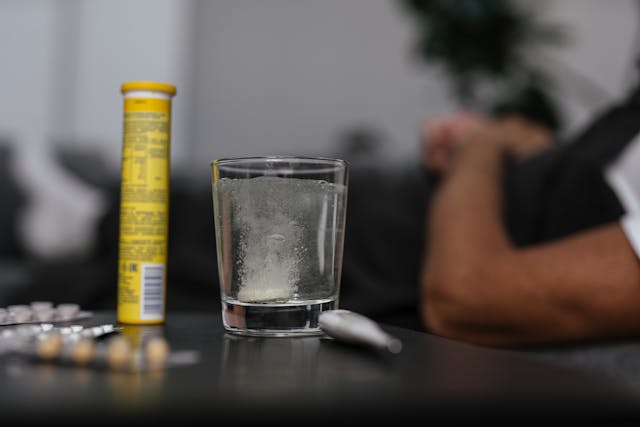When a medication causes harm, the patients who suffered injury may struggle to find answers and determine who may be held accountable for their situation. In some cases, they may be able to seek legal recourse against the drug manufacturer. However, pharmaceutical litigation can be incredibly complex and almost always requires the experience of a skilled attorney. Recent litigation efforts by the Ozempic, Rybelsus, and Wegovy injury attorneys at the Shapiro Legal Group, PLLC underscore the importance of holding pharmaceutical agencies liable for defective, ineffective, and dangerous medications.
In this article, we offer a general overview of the process and factors involved in suing a drug manufacturer. This article is meant for informative purposes only, and you should seek legal counsel if you or a loved one have been harmed by an ineffective, defective, or dangerous medication.
How Does Pharmaceutical Litigation Work?
Pharmaceutical companies operate under a strict guidelines designed to ensure they produce drugs that are effective and safe for the general public. The drug development process is overseen by the Food and Drug Administration (FDA), which guarentees that there is extensive testing and clinical trials before a drug goes to market. Despite these safeguards, adverse reactions can and do still occur.
When injuries do occur, a lawsuit may be filed against the liable manufacturer. Litigation against a pharmaceutical company oftentimes falls under product liability law. Under this area of law, manufacturers may be held liable for injuries caused by a defective product. As it relates to drugs and medical treatments, there may be defects such as:
- Errors in manufacturing or dosage
- Design flaws that make a medication inherently dangerous
- Inadequate warning about known risks and side effects
Building a Case Against the Liable Manufacturer
Pursuing a lawsuit against a pharmaceutical company can be incredibly challenging and time-consuming, even if you have an experienced attorney in your corner. To have a succesful case, individuals must first demonstrate that their injury was caused by the medication and secondly that the manufacturer is to blame. In most cases, they will need to provide evidence such as medical records, expert testimony, and additional proof to establish a connectio between the medication and harm suffered. As you may imagine, this process takes time and requires painstaking research to build the strongest possible case.
The lawsuit begins with the discovery phase, which allows the plaintiffs’ attorney to gather key information. The lawyer will request relevant medical records, depose witnesses, and obtain internal documents from the drug manufacturer. Expert witnesses, such as pharmacologists or medical experts, will be called upon to explain complex medical issues to the court and establish a clear connection between the drug and plaintiffs’ injury.
Legal Challenges of Pharmaceutical Litigation
Drug manufacturers often have robust, experienced legal teams prepared to defend them against lawsuits. Common defenses to product liability litigation include:
- Claims that the plaintiffs’ injury was not caused by the manufacturer’s medication
- Claims that the medication’s risks and potential side effects were adequately warned about
- Misuse of the medication or medical treatment by the plaintiff
Proving that a person’s health suffered exclusively due to a medication is challenging, as a person’s overall health depends on many factors.
When multiple people suffer similar injuries from a medication, a class action lawsuit may be pursued. Class action lawsuits allow attorneys to effectively pool resources, which increases the chances of a successful outcome that benefits the plaintiffs. At the same time, individual lawsuits may benefit individual plaintiffs more, particularly if some victims suffered significantly worse harm than others.
Impact of a Pharmaceutical Lawsuit
Successful lawsuits against drug manufacturers can have significant implications. For those adversely affected by a drug or medical treatment, there may be timely relief for medical expenses, pain and suffering, and lost wages. At the same time, holding drug manufacturers accountable for their actions reduces the risk of similar incidents in the future, which keeps consumers across the country safe.
Liability concerns can drive meaningful changes in terms of drug development, manufacturing, and marketing. A positive consequence of pharmaceutical litigation can include a renewed focus on patient safety, more rigorous drug testing, and improved product labeling. At the same time, it’s important to be mindful of the delicate balance between accountability and innovation in drug development.
Suing a Drug Manufacturer is a Complex Process
Suing a drug manufacturer can be incredibly difficult, even if you are fortunate enough to have exceptional legal representation. To increase your chances of a successful verdict on your behalf, it’s virtual to understand the nuances of the legal framework, how evidence is gathered, and how a strong case is created. While pharmaceutical litigation can be a challenge, it is worth the endeavor, since it provides for a safer world for consumers. If you believe you or a loved one may have been harmed by a deadly medication, consult with an attorney at once to discuss your case.










